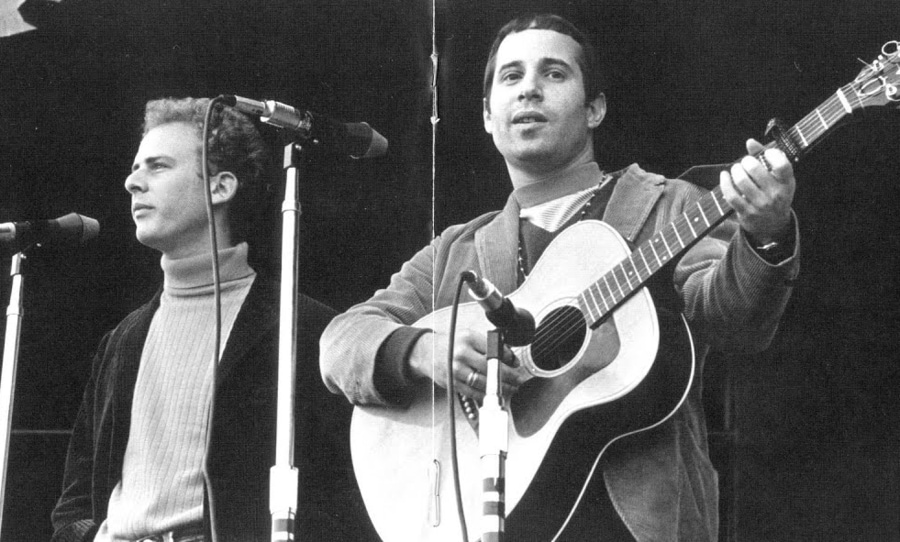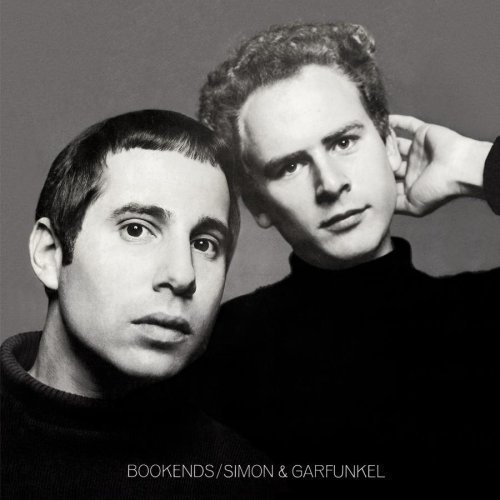Before Simon & Garfunkel reached their songwriting and creative peak with Bridge Over Troubled Water, there was Bookends.
Released in 1968, it’s undoubtedly one of the most eclectic folk records of the decade, despite only clocking in at 29 minutes. This wasn’t a cursory effort though, taking most of 1967 to finish recording. Its short runtime didn’t stop the album from receiving critical praise and high stature. Why should it? ‘”There’s no times at all, just the New York times,” Simon wittingly states on the records fourth track, Overs. So, let’s return to the folk-era of the 60s and delve into why the beautifully pioneering Bookends must not be overshadowed.

Simon & Garfunkel’s Bookends topped the US charts, solidified the folk duo’s high stature and became a key record in defining the 60s cultural movement.
Tom Wilson, a staffer from Columbia records caught ear of S&G’s angelic harmonies back in 1963. Thankfully, he knew the pair had to get signed. Although their professional beginning was rocky, the duo earnt widespread popularity with their emotionally crushing single, The Sound of Silence.
Paul Simon’s classical-sounding acoustic guitar and songwriting ability was sheer brilliance. When you combined it with Garfunkel’s higher range, they became unstoppable. Success for S&G continued, and after a few years, they finally had the budget to get really experimental on Bookends. Simon even defines it as their “first serious piece of work”.

On the album, S&G pushed folk-rock to new heights. They took a gamble with sonic exploration and definitely smoked some pot along the way. Simon’s approach to instrumentation widened. He began utilising brass, violas, percussionists, new recording techniques and more. They didn’t rush any of these creative efforts either. Every note, every breath, was recorded to perfection—as if money and time weren’t important.
For example, take the record’s hit single Mrs Robinson. It’s so perfectly catchy and precise, you probably can’t notice that it contains four vocal layers, not two. Garfunkel told the Telegraph, “we worked very hard for it,” which is still, somehow, an understatement. Simon composed Mrs Robinson for the movie The Graduate creating probably the best ‘movie genre’ song of all time.
However, limiting this album’s brilliance to Mrs Robinson is entirely inadequate. Partially inspired by The Beatles‘ Sgt. Peppers Lonely Hearts Club Band, Bookends is indeed a concept album. The duo’s very first. Simon plays his acoustic like a piano for opening track Bookends Theme, which later returns as a reprise. The reprise adds lyrics which perfectly tie up the themes of the record, including reflection, time and relationships. “Preserve your memories, they’re all that’s left of you.” It’s an incredibly sincere track that holds true to the duo’s existing tone.
Another standout is America. Written in a 6/8 time signature, it tenderly tells the story of a couple searching, yearning for America, in both a literal and metaphorical way. It’s warm, cold, epic and lonely all at the same time. “I looked at the scenery. She read her magazine. And the moon rose over an open field.” Moving down in the tracklist, how long do you reckon the 2 minutes and 13 seconds of Punky’s Dilemma took to record? If for some reason you guessed a whopping 50 hours, congratulations! It wasn’t merely the extension of instrumentation that made this album a masterpiece. It was the attention to detail and the high standard of perfection that the duo held themselves to.
Old Friends is another winner. Simon’s musical genius is supported in all the best ways here. A tasteful string accompaniment, some gorgeous falsetto from Garfunkel and some incredibly immersive lyrics. “How terribly strange to be 70″ is perhaps the record’s strongest observation, conjuring goosebumps most listens. S&G are equally powerful on the punchy folk-rock favourite A Hazy Shade of Winter. It moves quickly with impeccable vocals, percussion, drums and an acoustic riff that drills into the brain.
Overall, the creative range and adopted perfectionism for this record make it a timeless listen for any folk-fanatic. It’s a hallmark of 60s perspective and contains some of the duo’s most celebrated material, right before the eventual decay of their relationship. Some cuts are perhaps too ambitious, such as Voices Of Old People (which is literally just voices of old people), but for the most part, Bookends is a rare slice of genius.
Listen below:



